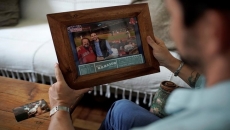In the tapestry of humanity, women stand as pillars of strength, resilience, and wisdom across generations. A rich tapestry of experiences defines womanhood through the ages. In this special feature, we embark on a journey across generations, inviting three remarkable women – a daughter, a mother, and a grandmother – to share their perspectives on life. Through their voices, we aim to uncover the nuanced layers of the female experience, weaving together past, present, and future threads.
Question 1: What does it mean for you to be a woman? What, in your lifetime, has been the value or role of a woman in society?

Karnail Kaur (Grandmother): "Being a woman means you are a kind and caring person who holds many important roles in the family. A woman is a mother, a wife, and a daughter. She has many roles in the way her family lives and how to support her children to the best of her abilities."
Sandeep Kaur (Mother): "Women are kind and caring, yet strong and powerful. She faces challenges and has to work for her family, herself, and society. There are times when a woman puts others before herself. A woman is the backbone of the family. She is the caregiver and portrays many roles of leadership. A woman has the role of a mother and a nurturer."
Amanat Kaur (Daughter): "Being a woman symbolizes your roles as a mother, a daughter, a wife, a nurturer, and an independent person. In our society, women aren't fully given the same appreciation as men. Women have to work twice as hard for any role in our lives, and we are questioned about it. I believe a woman is kind, caring, and loving. She is a teacher of morals and spreads goodness around the world."
Question 2: What are some challenges you face/ faced as a woman, and how do/did you navigate them?
Karnail Kaur (Grandmother): "Besides education, my husband's death caused me many challenges. I was to stay a widow because remarriage was not accepted in society. I couldn't take my rightful property. My own family had troubles, and I lost both my mother and father after my husband's death."

Sandeep Kaur (Mother): "There was discrimination between genders. After my father's death, I did not receive the land that belonged to him because I am a woman. Most parents did not spend money on their daughters' education and would save that money for their marriage. Also, women were not allowed to choose who they wanted to marry."
Amanat Kaur (Daughter): "As a young woman, I have faced many challenges in my work. We are underestimated and questioned if we can do something. We have to fight for the little opportunity we have in sports. Women are constantly compared to men in sports, even though a woman's body and a man's body are two completely different things. As a young woman, I always have to be careful about my whereabouts. Women often avoid wearing revealing clothes and turn to more simple clothes; we can't always feel confident in our clothing choices."
Question 3: What differences do you see regarding womanhood when you compare your experiences with your mom or daughter?
Karnail Kaur (Grandmother): "Women in this generation have more rights. They can receive a proper education. Women in this generation can get jobs in society. They are allowed to leave the house without any troubles."
Sandeep Kaur (Mother): "The women in this generation are more independent, and the attire has changed over the years, too. Women today don't stay in one particular job for too long and are always willing to grab new opportunities. Women nowadays can study abroad while they were prohibited from doing so in the past."
Amanat Kaur (Daughter): "In my generation, we have the right to an education. We have more rights and freedom. In comparison to my mother's life, we have many more opportunities."

As we draw the curtains on this exploration of women across generations, one truth emerges: the indomitable spirit of womanhood knows no bounds. As we honour the past, embrace the present, and envision the future, let us stand in solidarity, united in our diversity, empowered by our shared experiences, and emboldened by the knowledge that together, we are unstoppable.






